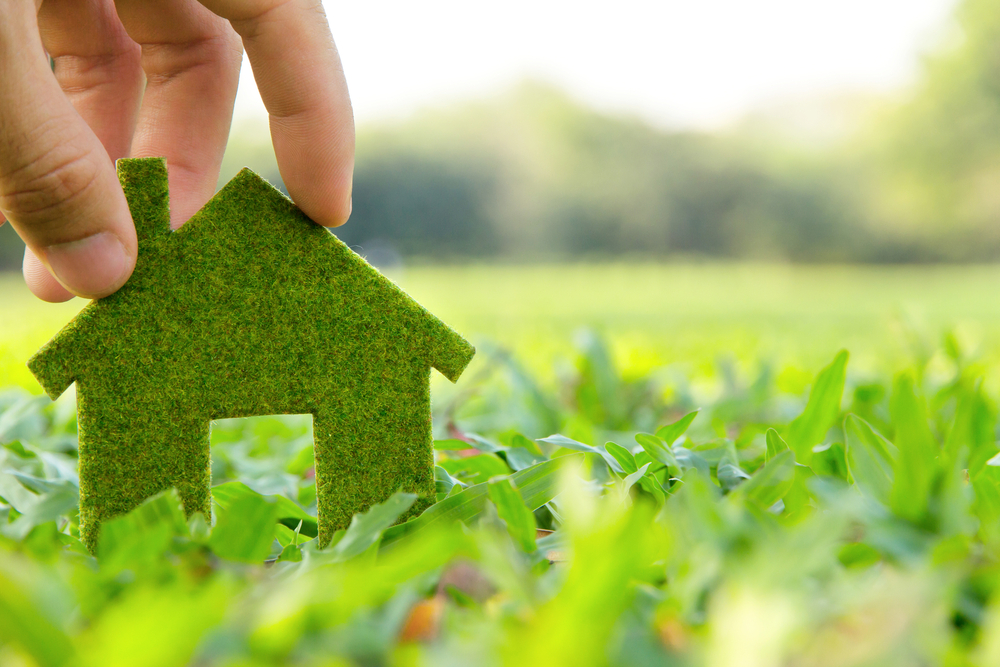
In today's environmentally-conscious world, many individuals are seeking practical solutions to reduce their carbon footprint and embrace a greener lifestyle.
This article explores the top 10 eco-friendly projects that can be implemented on your homestead, providing informative and actionable steps to make a positive impact on the planet.
From rainwater harvesting systems to solar panel installations, vegetable gardening to beekeeping, this guide offers practical solutions for those seeking to create a sustainable and eco-friendly home environment.
Rainwater Harvesting Systems
Rainwater harvesting systems, when properly implemented, offer an effective solution for sustainable water management on your homestead. By capturing and storing rainwater that falls on your property, you can reduce your reliance on municipal water sources and decrease your water bills.
Harvesting rainwater also promotes sustainable landscaping practices by providing a free and abundant water supply for your plants, reducing the need for irrigation and conserving water resources. Installing a rainwater collection system is a practical and cost-effective way to make your homestead more self-sufficient and environmentally friendly.
With the right equipment and proper maintenance, you can easily collect and store rainwater for various uses, such as watering your garden, washing your car, or even flushing toilets. Embracing rainwater harvesting not only saves water but also supports a more sustainable and eco-conscious lifestyle.
Solar Panel Installation
Implementing solar panel installation is a practical and effective way to harness renewable energy for your homestead. By installing solar panels, you can reduce your dependence on traditional energy sources and lower your carbon footprint.
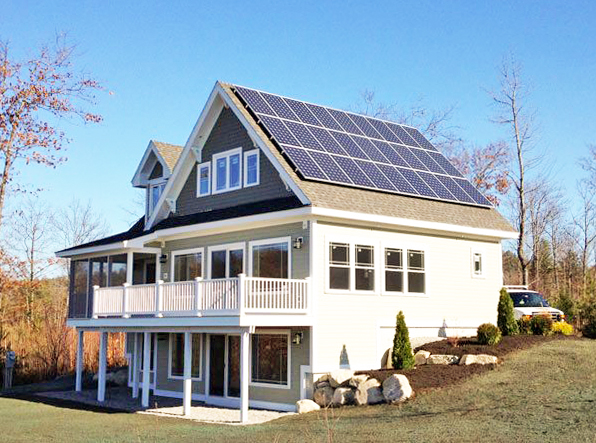
Here are three reasons why solar panel installation is a great choice for your homestead:
- Energy Independence: By generating your own electricity from the sun, you can break free from the grid and become self-sufficient. This gives you the freedom to control your energy production and consumption.
- Cost Savings: While the initial investment for solar panel installation may seem high, it pays off in the long run. Solar panels can significantly reduce your energy bills, saving you money every month.
- Environmental Benefits: Solar energy is clean and renewable, producing no harmful emissions. By choosing solar power, you are contributing to a healthier and more sustainable future for our planet.
To ensure the longevity of your solar panels, regular maintenance is essential. Additionally, there are various solar panel financing options available to make the installation process more affordable.
Composting Methods
Composting is an essential practice for any eco-friendly homestead. There are two main methods to choose from: using a compost bin or creating a compost pile.
Both options have their own benefits, such as reducing waste, improving soil quality, and minimizing the need for chemical fertilizers.
However, it's important to be aware of common troubleshooting issues that may arise, such as odor, pests, or slow decomposition, in order to address them effectively and maintain a successful composting system.
Bin or Pile
One effective method for eco-friendly composting on your homestead is through the utilization of a compost bin or pile. This method allows you to conveniently collect and manage organic waste, reducing the amount of waste that goes into landfills.
Here are three reasons why using a compost bin or pile is a great choice for sustainable waste management:
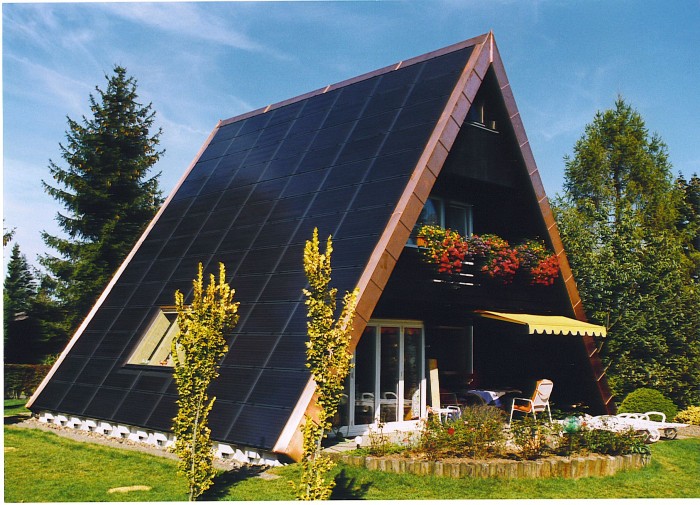
- Efficient use of space: Compost bins or piles can be easily set up in your backyard or even indoors, making it a practical option for those with limited space.
- Nutrient-rich compost: By using a compost bin or pile, you can create nutrient-rich compost that can be used to enrich your garden soil, promoting healthier plant growth and reducing the need for chemical fertilizers.
- Reduced carbon footprint: Composting your organic waste instead of sending it to the landfill helps to reduce greenhouse gas emissions, contributing to a cleaner and greener environment.
Benefits of Composting
To maximize the benefits of composting, it is essential to explore various composting methods.
Composting offers numerous advantages, both for your homestead and the environment. First and foremost, composting reduces waste by diverting organic materials from landfills. Instead of contributing to greenhouse gas emissions, these materials are transformed into nutrient-rich soil amendments.
Composting also helps improve soil health by increasing its moisture retention and nutrient content. This, in turn, promotes healthier plant growth and reduces the need for chemical fertilizers. Additionally, composting can help save money by reducing the need to purchase soil amendments and fertilizers.
There are several composting techniques to choose from, including aerobic composting, vermicomposting, and bokashi composting. By exploring and implementing these composting methods, you can reap the numerous benefits that composting has to offer.
Troubleshooting Common Issues
In order to address common issues encountered with composting methods, a comprehensive troubleshooting approach is necessary. Here are three troubleshooting techniques to help you overcome common problems:
- Odor Control: If your compost pile has a foul smell, it may be due to an imbalance of nitrogen and carbon. To rectify this, add more carbon-rich materials like dried leaves or straw. Turning the pile regularly will also help aerate it and reduce odor.
- Pest Infestation: If you notice pests such as flies or rats in your compost pile, it may be because you're adding food scraps that attract them. To prevent this, avoid adding meat, dairy, or oily food waste. Instead, focus on vegetable scraps, fruit peels, and coffee grounds.
- Slow Decomposition: If your compost is taking longer than expected to break down, it may be due to insufficient moisture or lack of oxygen. Ensure that your compost pile is adequately moist, but not too wet, and turn it regularly to allow for proper aeration.
Vegetable Gardening
Vegetable gardening is a sustainable and rewarding practice that promotes self-sufficiency and contributes to a greener lifestyle. One innovative technique to maximize space and yield is vertical gardening. This method involves growing plants on vertical structures such as trellises, walls, or fences, allowing you to make the most of limited space.
Vertical gardening not only saves space but also provides better air circulation and sunlight exposure, leading to healthier plants.
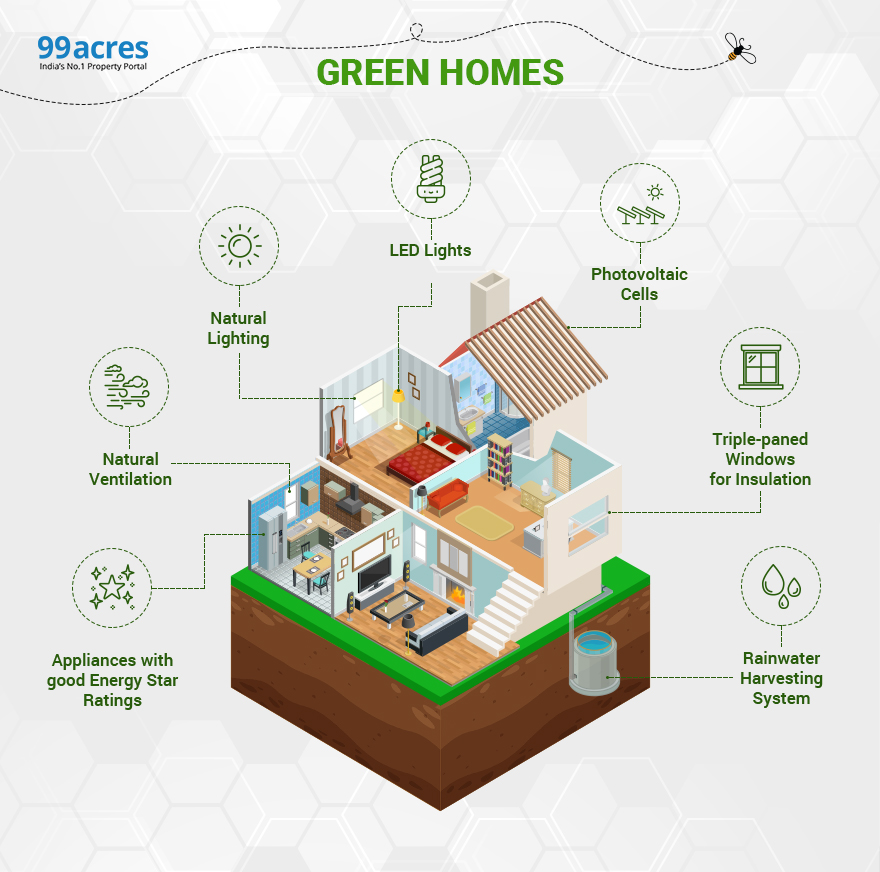
Another strategy to enhance the productivity of your vegetable garden is companion planting. By pairing compatible plants, you can naturally deter pests, encourage pollination, and optimize nutrient uptake. For example, planting marigolds alongside tomatoes can repel harmful insects, while planting basil near peppers can enhance their flavor and growth.
Incorporating these techniques into your vegetable gardening endeavors will not only result in a bountiful harvest but also contribute to a more sustainable and eco-friendly lifestyle.
Beekeeping
One essential eco-friendly project to consider for your homestead is beekeeping, as it complements vegetable gardening by promoting pollination and enhancing biodiversity. Beekeeping has numerous benefits that not only contribute to the health of your garden but also provide you with a sustainable source of honey production.
Here are three reasons why you should consider beekeeping on your homestead:
- Pollination: Bees are excellent pollinators and play a crucial role in the reproduction of plants. By keeping bees, you can ensure that your vegetable garden receives adequate pollination, leading to increased yields and healthier crops.
- Biodiversity: Beekeeping promotes biodiversity by attracting different species of bees to your homestead. This diversity of bees helps in maintaining a balanced ecosystem and supports the growth of various plant species.
- Honey Production: Beekeeping allows you to harvest your own honey, a natural sweetener that is healthier and more sustainable than processed sugars. By producing your own honey, you can reduce your reliance on store-bought alternatives and have a greater control over the quality and purity of the honey you consume.
With its numerous benefits, beekeeping is a worthwhile project to consider for any eco-conscious homesteader.
Recycling Household Waste
The proper management of household waste through recycling is an essential eco-friendly project for your homestead. Recycling not only helps reduce waste but also conserves natural resources and reduces pollution.
To incorporate recycling into your household routine, there are a few tips you can follow. Firstly, set up a recycling station in your home with clearly labeled bins for different types of recyclables such as paper, plastic, glass, and metal.

Educate yourself and your family about what can and cannot be recycled in your area. Rinse out containers before recycling to avoid contamination. Consider composting organic waste to further reduce your overall waste footprint.
Lastly, support local recycling initiatives and businesses that promote sustainability. By adopting these recycling practices, you can make a significant impact in reducing waste and contributing to a greener future.
Raising Backyard Chickens
Raising backyard chickens offers numerous benefits for eco-conscious individuals.
Not only do they provide a sustainable source of fresh eggs, but they also help reduce food waste by eating kitchen scraps.
To ensure the health and happiness of your chickens, it's important to have a well-designed chicken coop that provides shelter, security, and proper ventilation.
Benefits of Backyard Chickens
Backyard chickens offer numerous tangible benefits for homesteaders, providing a sustainable source of fresh eggs and natural pest control. Here are three reasons why raising backyard chickens can enhance your homestead:
- Self-sufficiency: By raising your own backyard chickens, you can have a constant supply of fresh eggs, reducing your reliance on store-bought eggs. This not only saves you money but also gives you peace of mind knowing where your food comes from.
- Natural pest control: Chickens are excellent at controlling pests such as slugs, snails, and insects. They scratch and peck the ground, consuming these pests and keeping your garden free from harmful infestations. This eliminates the need for chemical pesticides, promoting a healthier and more eco-friendly environment.
- Connection to nature: Raising backyard chickens allows you to reconnect with nature on a daily basis. Observing their behaviors, caring for them, and witnessing the cycle of life can be incredibly fulfilling, providing a sense of freedom and self-sustainability.
When considering backyard chicken breeds, choose ones that are well-suited to your climate and space availability. Additionally, explore different chicken feed options to ensure your flock receives a balanced diet.
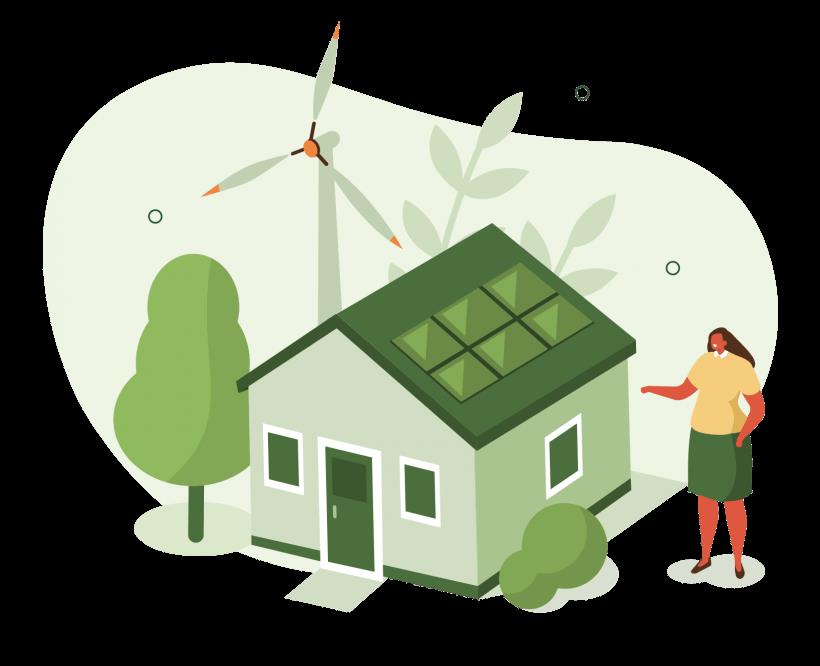
Chicken Coop Essentials
To ensure the well-being and productivity of your backyard chickens, it is crucial to have a well-designed and properly equipped chicken coop. When it comes to chicken coop design, there are a few key essentials to consider.
First, make sure the coop is spacious enough for your chickens to move around comfortably. It should also have proper ventilation to prevent the buildup of moisture and odors.
Additionally, provide nesting boxes for your hens to lay eggs, and roosting bars for them to perch on.
Regular chicken coop maintenance is also important to keep your chickens healthy and happy. This includes cleaning the coop regularly, checking for any signs of pests or disease, and ensuring there is fresh food and water available at all times.
Using Natural Cleaners
When maintaining an eco-friendly homestead, it is essential to incorporate the use of natural cleaners for a healthier and sustainable living environment. Natural cleaning solutions not only minimize exposure to harmful chemicals but also reduce the environmental impact of traditional cleaning products.
Here are three DIY cleaning products that are effective, affordable, and better for the planet:
- Vinegar and water solution: Mix equal parts of white vinegar and water to create a versatile all-purpose cleaner. This solution can be used to clean windows, countertops, and bathroom fixtures.
- Baking soda scrub: Combine baking soda with a few drops of water to form a paste. This gentle abrasive can be used to scrub sinks, tubs, and tile grout, leaving them sparkling clean.
- Lemon juice polish: Cut a lemon in half and use it to clean and shine stainless steel appliances, brass fixtures, and copper cookware. The natural acidity of lemon juice helps remove stains and leaves a fresh scent behind.
Making Homemade Soaps
Continuing the exploration of eco-friendly cleaning solutions, another project that promotes sustainability and a healthier home environment is making homemade soaps.

By creating your own soaps, you have full control over the ingredients and can avoid harmful chemicals found in commercial products. Homemade soaps can be made using natural ingredients such as essential oils, herbs, and organic oils.
They are not only better for your skin but also for the environment, as they reduce the use of plastic packaging and the production of harmful waste.
Additionally, making your own soaps can be a creative and enjoyable activity, allowing you to customize scents and textures to suit your preferences.
This project can also be extended to making other natural skincare products such as homemade candles, providing you with a complete range of eco-friendly alternatives for your home.
Installing Wind Turbines
Installing wind turbines on your homestead can bring numerous benefits.
First, they are cost-effective and affordable in the long run, as they harness the power of the wind to generate electricity, reducing your reliance on traditional energy sources.
Secondly, wind turbines offer significant environmental benefits by producing clean and renewable energy, reducing carbon emissions and helping combat climate change.
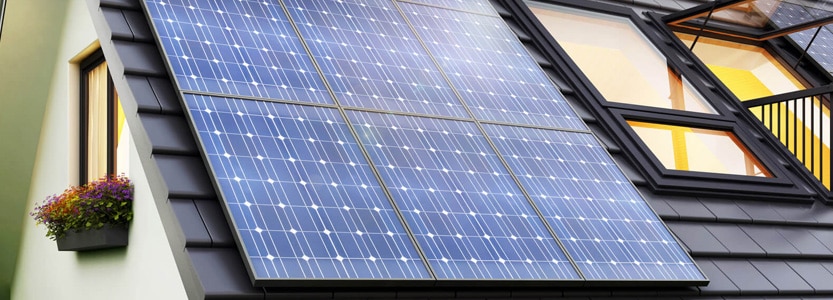
Lastly, the power generation capacity of wind turbines can provide you with a reliable source of electricity, even in remote areas, making them a practical and sustainable solution for your homestead.
Cost and Affordability
Implementing wind turbines on your homestead requires careful consideration of the cost and affordability. While wind energy is a sustainable and renewable source of power, it is essential to conduct a cost analysis to determine if it aligns with your budget.
Here are three budget-friendly alternatives to make wind turbines more affordable for your homestead:
- Research government incentives and grants: Many governments offer financial incentives to encourage the adoption of renewable energy, including wind turbines. Explore the available programs in your region to find out if you qualify for any financial assistance.
- Consider used or refurbished turbines: Purchasing used or refurbished wind turbines can be a cost-effective option. These turbines have been previously utilized but are still functional and can significantly reduce the upfront costs.
- Form a community cooperative: Collaborating with your neighbors or fellow homesteaders to invest in a communal wind turbine can help distribute the costs. By pooling resources, individuals can share the expenses associated with the installation and maintenance of the turbine.
Environmental Benefits
Wind turbines offer significant environmental benefits for your homestead, contributing to a cleaner and more sustainable energy future. By harnessing the power of the wind, these turbines generate electricity without producing greenhouse gas emissions or air pollution. This not only helps to reduce the impact of climate change but also improves the air quality around your property.
Installing wind turbines on your homestead promotes sustainable practices by reducing your reliance on fossil fuels and supporting renewable energy sources. Additionally, wind energy is a local resource that can be harnessed without depleting finite resources or causing environmental damage.
Power Generation Capacity
Harnessing the power of wind turbines on your homestead not only contributes to a cleaner and more sustainable energy future, but it also significantly increases your power generation capacity. By installing wind turbines, you can tap into the abundant and renewable energy provided by the wind, allowing you to become more self-sufficient and reduce your reliance on traditional power sources.
Here are three reasons why incorporating wind turbines into your homestead is a wise choice:

- Power storage: Wind turbines can generate more electricity than you need at any given time. By utilizing power storage solutions such as batteries, you can store excess energy for later use, ensuring a continuous and reliable power supply even when the wind isn't blowing.
- Renewable energy: Wind turbines are a form of renewable energy, meaning they harness an energy source that is naturally replenished. By utilizing renewable energy, you reduce your carbon footprint and contribute to the fight against climate change.
- Increased independence: Installing wind turbines allows you to take control of your power generation. You become less dependent on external power sources and are free to generate your own electricity, providing you with a sense of freedom and self-sufficiency.
Frequently Asked Questions
What Are the Benefits of Rainwater Harvesting Systems?
Rainwater harvesting systems offer numerous benefits, including cost effectiveness and environmental sustainability. By collecting and storing rainwater, homeowners can reduce their reliance on traditional water sources, lower utility bills, and contribute to water conservation efforts.
How Much Does It Cost to Install Solar Panels?
Cost comparison and government incentives play a significant role in the installation of solar panels. The initial investment for solar panels can vary depending on factors such as size and location, but the long-term benefits outweigh the costs.
What Are the Different Methods of Composting?
There are several methods of composting, including hot composting and vermicomposting. Hot composting involves creating a pile of organic materials that reach high temperatures, while vermicomposting uses worms to break down organic waste. These methods are effective in reducing waste and enriching soil.
How Do I Start a Vegetable Garden?
Starting a vegetable garden can be an enjoyable and rewarding experience. To begin, consider starting seeds indoors and using organic fertilizers for healthier plants and sustainable gardening practices.
How Can I Get Started With Beekeeping?
To get started with beekeeping, it is important to understand the basics. Begin by researching the necessary equipment, such as beehives and protective gear. Educate yourself on bee behavior and maintenance techniques to ensure a successful and sustainable beekeeping venture.
 Family Craft ProjectsHome ImprovementCooking and BakingReuse and RecycleDIY GiftsEco-Friendly ProjectsDIY Home SolutionsSeasonal ActivitiesFun and GamesLearn TogetherPrivacy PolicyTerms And Conditions
Family Craft ProjectsHome ImprovementCooking and BakingReuse and RecycleDIY GiftsEco-Friendly ProjectsDIY Home SolutionsSeasonal ActivitiesFun and GamesLearn TogetherPrivacy PolicyTerms And Conditions
